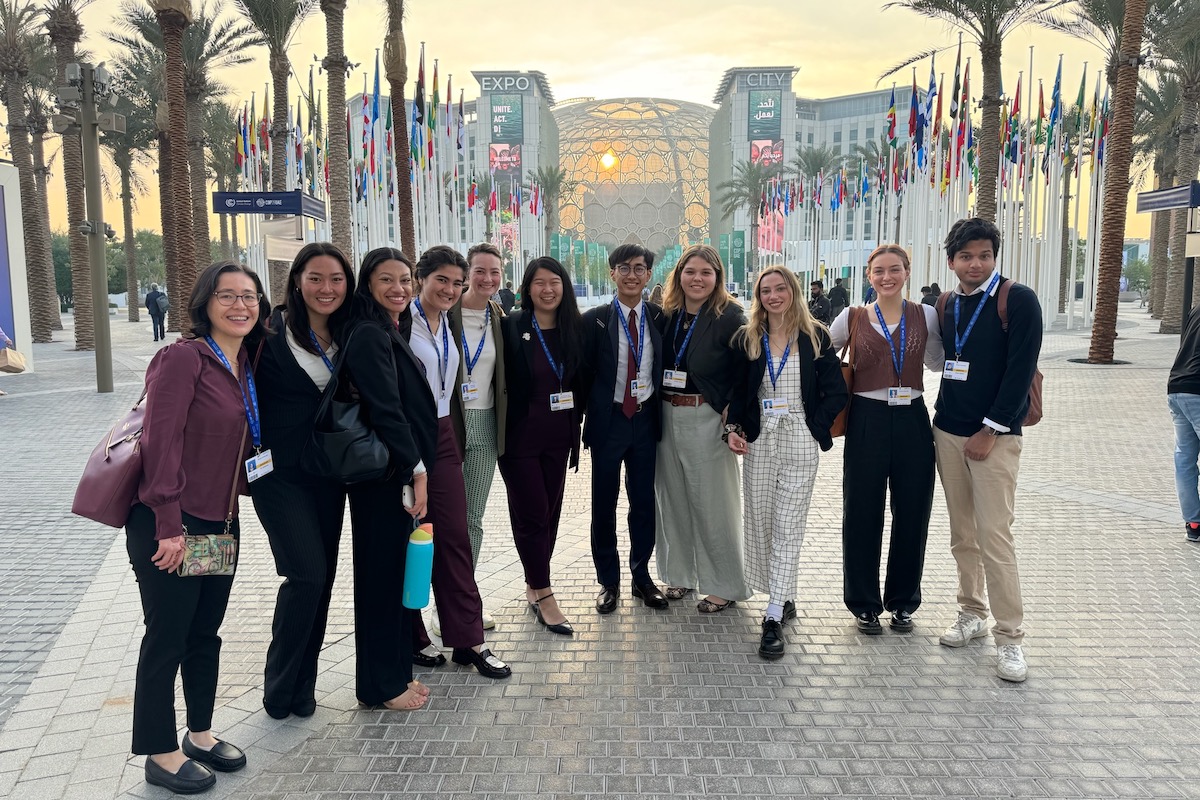Editor’s note: This event has been postponed. Registration for when it is rescheduled has reached capacity. |
Internationally renowned civil rights leader Andrew Young headlines a student-organized event titled “Championing Change: International Climate Diplomacy and Social Justice” on Thursday, April 25, starting at 5:30 p.m. in the Emory Student Center Multipurpose Room.
At the request of students from Emory Climate Talks, Young will speak on the importance of work at the intersection of social justice and climate change.
After beginning his career as a pastor, Young became a confidant to Martin Luther King Jr. and executive director of the Southern Christian Leadership Conference. He served as a U.S. Congressman from Georgia, the 55th mayor of Atlanta and as the U.S. ambassador to the United Nations under the administration of President Jimmy Carter.

Civil rights leader Andrew Young will speak on the importance of work at the intersection of social justice and climate change.
“Andrew Young has done a lot of work on emerging societal issues,” says Sohan Bellam, a sophomore majoring in political science and quantitative sciences involved with Emory Climate Talks. “It will be interesting to hear his thoughts on the connections between social justice movements in the United States and international climate action.”
Young’s remarks will be followed by a panel discussion with Bellam and 10 other students from Emory Climate Talks, an organization that aims to connect and empower people across campus to work toward solutions to climate change. The students will discuss insights they gained as on-the-ground observers during the annual United Nations climate summit, or the conference of parties — known as COP28 — held last November in Dubai, United Arab Emirates.
Following their remarks, Young and the students will respond to questions from the audience.
“Climate change needs to be solved collectively because it affects every single person that lives on the planet,” says Bellam, who is currently an intern with the U.S. Department of State, drafting reports and policy briefs for the U.S. Delegation to the United Nations Human Rights Council.
“Globally, we should be creating agreements that require the most emission reductions from the wealthiest states,” Bellam says. “At the U.S. level, we need continued research into how climate change is going to affect agriculture, urban areas and marginalized communities to help find ways to mitigate those impacts.”
“Climate change is going to exacerbate many of the problems already faced by underserved communities,” adds Eri Saikawa, director of Emory Climate Talks and Winship Distinguished Research Professor of Environmental Sciences. “It’s important to connect people working on the science of climate change with people who work on social justice. We need to bridge the gaps between the research into potential solutions and the people who will be most impacted by climate change.”
Saikawa began leading students from her Climate Change and Society class to the annual global climate talks in 2015, when COP was held in Paris. That year, nearly 200 member countries hammered out the Paris Agreement, aiming to keep the global mean rise in temperature to no more than 2 degrees Celsius above preindustrial levels.
Thirteen Emory students traveled to Dubai for COP28 in 2023, the hottest year on record.
“The negotiations at COP28 made no real progress, which is disheartening,” Saikawa says. “But attending COP is still beneficial to help understand the issues and to network with many people from across the world passionate about mitigating climate change.”
She will soon start accepting applications for a student delegation to COP29, set for Nov. 11-22 in Baku, Azerbaijan.
“Rather than just having students follow international negotiations, my goal is for them to also become agents of change, starting locally,” Saikawa says. “The ‘Championing Change’ event is another step toward that goal.”

